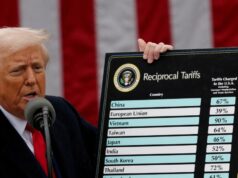Israel Prime Minister Benjamin Netanyahu recently canceled a high-level Israel delegation’s visit to Washington after the US abstained during the UN Security Council.
Is he now walking back from that call? When Netanyahu met visiting US senator Rick Scott, he told him, “My decision not to send the delegation to Washington in the wake of that resolution was a message to Hamas.”
The resolution on an immediate ceasefire in Gaza was adopted by the UNSC on March 25. Before this, the US had vetoed three resolutions in the UN seeking a ceasefire. Netanyahu’s office had called the US decision a ‘clear retreat from its consistent position’, adding that the abstention ‘hurt both the war effort and the effort to release the abductees’.
The US had said there was no shift in its policy. While speaking to the press on March 25, after the US’s abstention, State Department Spokesperson Mathew Miller had said, “The ceasefire will come out of negotiations (not so much basis the UN resolution).”
Now Netanyahu seems to have taken a step back and has asked Washington to reschedule the high-level delegation meeting he had canceled.
In a video released by the Israeli PM’s office, Netanyahu is heard telling Rick Scott, “The bad thing about the US decision at the UN security council was that it encouraged Hamas to take a hardline and to believe that international pressure will prevent Israel from a) freeing the hostages and destroying Hamas. Therefore my decision not to send the delegation to Washington in the wake of that resolution was a message to Hamas – ‘Don’t bet on this pressure, it’s not going to work’.”
Whether the pressure worked on Hamas or not, the recent tensions with Israel’s strongest ally have certainly prompted a change of heart for Netanyahu, who continues to face protests at home and abroad over his continued bombardment of Gaza and plans to push ahead with a ground offensive in Rafah.
The situation in Gaza remains grim, with nearly 32,000 Palestinian casualties, two-thirds of whom are women and children. The UN has warned of an imminent famine in northern Gaza.
Back home in Israel, Netanyahu’s reaction to the US abstention has been criticized by Israeli commentators. Editorials in Israeli newspapers used a range of harsh terms to characterize Netanyahu’s decision ranging from ‘madness’ to ‘delusional’.
Gershon Baskin, who was involved in the negotiations to free an Israeli soldier, Gilad Shalit, held hostage by Hamas in 2006 said on X, “Netanyahu is off the rails. He is an existential danger to Israel. He must be gone from our lives.”
US Secretary of State Antony Blinken will be in Israel once again to push for alternatives to the ground offensive in Rafah.
Will the latest move by Netanyahu help smooth things over with Washington after the Israel-Hamas war started six months ago?





